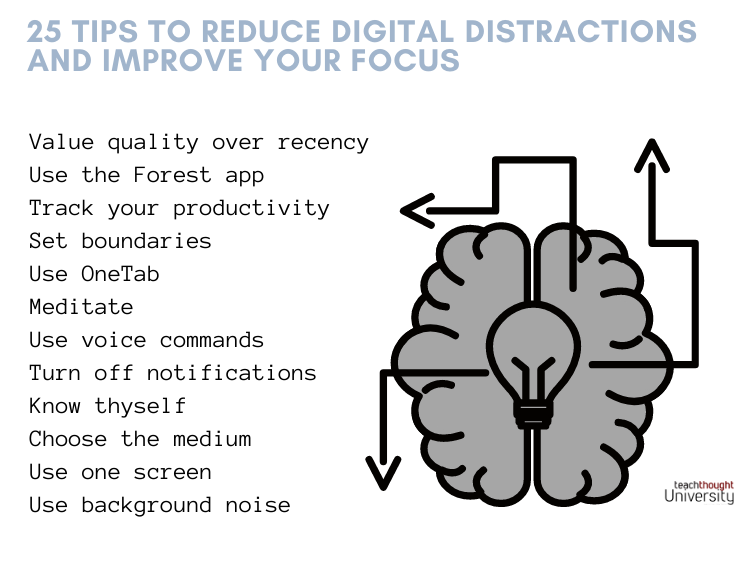What are the most effective methods for managing and reducing digital distractions?


In today’s digital age, it is no surprise that we are constantly bombarded with digital distractions. Whether it’s the ping of a new email, the notification from a social media app, or the temptation to browse the internet, these distractions can significantly impact our productivity and focus. However, there are effective methods for managing and reducing digital distractions that can help us regain control of our time and attention. In this article, we will explore some of the most effective strategies for managing and reducing digital distractions, including productivity tips, time management techniques, and mindfulness practices.
Understanding Digital Distractions
Before we delve into the methods for managing and reducing digital distractions, it is important to understand what they are and how they affect us. Digital distractions refer to any interruption or diversion caused by technology, such as smartphones, computers, and tablets. These distractions can range from social media notifications to the temptation to constantly check emails or browse the internet.
Digital distractions can have a negative impact on our productivity, focus, and overall well-being. They can lead to decreased work efficiency, increased stress levels, and even technology addiction. Therefore, it is crucial to find effective ways to manage and reduce these distractions to improve our productivity and well-being.
Managing Digital Distractions
1. Set Clear Boundaries
One of the most effective methods for managing digital distractions is to set clear boundaries. This involves establishing specific rules and guidelines for your technology use. For example, you can designate certain times of the day as “technology-free” zones or set limits on the amount of time you spend on social media or browsing the internet.
2. Create a Distraction-Free Environment
Creating a distraction-free environment can significantly reduce digital distractions. This can be achieved by turning off notifications on your devices, keeping your phone out of sight or in another room while working, and using website blockers or apps that limit your access to certain websites or apps during specific times.
3. Prioritize and Plan
Effective time management is essential for managing digital distractions. Prioritize your tasks and create a schedule or to-do list to help you stay focused and organized. By having a clear plan in place, you are less likely to get sidetracked by digital distractions.
4. Practice Single-Tasking
Multitasking is often seen as a desirable skill, but it can actually hinder productivity and increase digital distractions. Instead, practice single-tasking by focusing on one task at a time. This allows you to give your full attention to the task at hand and reduces the temptation to switch between different apps or activities.
Reducing Digital Distractions
1. Digital Detox
A digital detox involves taking a break from technology for a certain period of time. This can be a few hours, a day, or even a week. During this time, disconnect from your devices and engage in activities that do not involve technology, such as reading a book, going for a walk, or spending time with loved ones. A digital detox can help reset your mind, reduce technology addiction, and increase your overall well-being.
2. Set Screen Time Limits
Many devices now offer screen time tracking and limiting features. Take advantage of these features to set limits on the amount of time you spend on your devices. This can help you become more aware of your technology use and reduce the time spent on digital distractions.
3. Practice Mindfulness Techniques
Mindfulness techniques, such as meditation and deep breathing exercises, can help reduce digital distractions by increasing your ability to focus and stay present. Incorporate mindfulness practices into your daily routine to improve your attention span and reduce the urge to constantly check your devices.
4. Seek Support
If you find it challenging to manage and reduce digital distractions on your own, seek support from friends, family, or even professionals. Joining support groups or seeking therapy can provide you with the necessary tools and guidance to overcome technology addiction and develop healthier habits.
In conclusion, managing and reducing digital distractions is crucial for improving productivity, focus, and overall well-being. By setting clear boundaries, creating a distraction-free environment, prioritizing and planning, practicing single-tasking, and implementing strategies such as digital detox, screen time limits, and mindfulness techniques, you can regain control of your time and attention. Remember, it is important to find a balance between technology use and other aspects of your life to lead a more fulfilling and productive life.
Recent Posts
How do I create an engaging and informative online quiz or assessment?
Creating an engaging and informative online quiz or assessment can be a powerful tool for… Read More
What are the most effective methods for managing and reducing work-related stress in the hospitality industry?
Work-related stress is a common issue in the hospitality industry, where employees often face long… Read More
How can I improve my assertiveness and communication skills in a leadership position?
In a leadership position, assertiveness and effective communication skills are crucial for success. Being able… Read More
What are the key elements of a successful employee recognition and rewards program?
Employee recognition and rewards programs play a crucial role in motivating and engaging employees, as… Read More
How do I effectively manage and respond to customer feedback and reviews?
Customer feedback and online reviews play a crucial role in shaping a company's reputation and… Read More
What are the best strategies for effective time management as a stay-at-home parent?
Effective time management is crucial for stay-at-home parents who juggle multiple responsibilities on a daily… Read More